【新唐人2011年8月13日訊】近期,以「茉莉花革命」為由,被中共拘禁的大陸維權人士和異議人士陸續被釋放。8月9號,被關押近半年、備受國內外關注的異議作家冉雲飛,也終於回了家。而流亡海外20多年的異議詩人北島,也被中共高規格邀請,8月8號參加了由當局舉辦的詩歌節。分析指出,中共想利用知識份子,轉變輿論對當局的批評,因此示好異議人士。
被中共邀請回國的著名異議詩人北島,出席了由中共當局舉辦的「第三屆青海湖國際詩歌節開幕式」,併發表演講。
中共喉舌《人民網》在報導開幕式時,不但登出了北島的名字,更刊出了他演說的照片,同時,也登出了他與中國作協主席及青海省幾位官員的合影照。
《新華社》還發表了對北島的長篇專訪,長達1590字。
時事評論員伍凡認為,中共是想利用知識份子來改變人們對他的看法,妄想延續即將滅亡的命運。
伍凡:「就是打一張牌,你看我們對異議人士也寬鬆了,也是一種示好的手段,或者一種收買的手段,是想改變人們對中共的看法,但是我看不起作用的。」
北島因支持6.4民運而流亡海外,他的名詩「卑鄙是卑鄙者的通行證,高尚是高尚者的墓誌銘」中國民眾耳熟能詳。20多年來,北島多次想回到自己的祖國,但一直被當局冷凍處理,這次受邀回國,令一些流亡人士感到意外,流亡台灣的詩人貝嶺懷疑,當局有意分化海外流亡人士。
而獨立作家冉雲飛的案件則峰迴路轉,檢察院對他的起訴被法院退回,現在他已回到家中,不過還被監視居住。冉雲飛以前的辯護律師冉彤表示,這是案件緩和的表現。
冉彤:「監視居住是偵察過程中,一種權利限制的一種變更,比較緩和了一些。不能擅自對外聯繫,見人,有甚麼大的活動,要向當地的公安機關報告。」
冉雲飛經常在網上發表時政文章,今年2月20號被四川警方以「散佈茉莉花革命信息」為名帶走,今年3月,中共當局以「涉嫌煽動顛覆國家政權罪」正式逮捕冉雲飛。
今年二、三月間,中共當局拘押的多名異議人士和維權人士,已經先後獲得釋放。包括北京維權律師江天勇、滕彪、唐吉田,上海律師李天天,以及上星期獲得釋放的廣州律師唐荊陵。但是,他們的人身和言論自由依然受到限制。
網路記者周曙光認為,釋放拘押的異議人士改為「監視居住」是當局的一種策略。他有幾位朋友也都是處於被監視居住的狀態,當局提出的條件之一就是:不能接受採訪。
周曙光:「據我所知,包括艾未未,也包括今年上半年大部分被抓進去又放出來的,他們的待遇都是監視居住,冉雲飛也不例外,我想這是政府對這些活躍人士的一種政策吧。」
曾任香港《文匯報》駐大陸記者,之前還曾在《新華社》工作過的姜維平撰文指出,從北島還鄉與冉雲飛獲釋,表明先前高壓的政治氣候多少有了一點變化。不過,他說:「北島一時不會吶喊,但會被高規格的禮遇和善待﹔冉雲飛不會再坐牢房,直到他閉嘴的一年期限過去﹔艾未未還會被限定了範圍,給他適度的自由。總之,中國還沒有成為民主和法制的國家,在轉型期間,它必然是雜亂無章,茫然多變的。」
新唐人記者劉惠、蕭宇採訪報導。
CCP's Tactics towards Dissidents
Recently, some dissidents and rights activists arrested by the
Chinese authorities (CCP) for “Jasmine Revolution”
have been gradually released.
On Aug. 9, the world-concerned dissident writer Ran Yunfei
was also released after a 6-month of detention.
The dissident poet Bei Dao, who was in exile abroad
for over 20 years, was recently invited back in high profile.
He attended an officially sanctioned poem festival on Aug. 8.
Analysts say that the CCP intends to use intellectuals to
avert the public criticism of it.
The renowned dissident poet Bei Dao attended the opening
ceremony of the 3rd Lake Qinghai International Poem Festival.
When covering the opening ceremony,
the CCP's mouthpiece, People.com, carried Bei Dao』s name,
a photo of his speech and a group photo of him with the
Chair of the Chinese Writers' Association and several officials.
The CCP's official Xinhua News Agency also published
a long exclusive interview with Bei Dao.
Wu Fan, current issues commentator, believes that
the CCP intends to change the public view
by using the intellectuals
and wishes to continue its doomed life.
Wu Fan: “It is only a camouflage to show that
the CCP has become lenient on dissidents.
It is a tactic to win them over and to suborn dissidents and
change people's views on the CCP.
However, I do not think it will be effective.”
Bei Dao was exiled for supporting the Tiananmen movement.
His famous quote “Dirty means is a pass of the dirty dog,
while nobility is the epitaph for the noble” is famous in China.
In the past 20 years, Bei Dao attempted in vain to go back,
due to the blockage of the authorities.
It is shocking to some overseas dissidents that
Bei Dao was officially invited back to China.
Bei Ling, a poet-in-exile in Taiwan, suspects that
the CCP authorities are trying to alienate and
disintegrate overseas dissidents this way.
After going through a zigzag legal path, the case of
independent writer Ran Yunfei was rejected by the court.
He is now home, but still under surveillance.
His former lawyer Ran Tong said that
this was a sign of ease for his case.
Ran Tong: “Surveillance is a relatively mild restriction of
rights in the process of investigation.
The requirements are having no contacts or no meetings with
anybody, and reporting to the local police department
in the case of any major events.”
Ran Yunfei used to publish many online political articles.
On Feb. 20, he was taken away by Sichuan police
for “spreading Jasmine Revolution information.”
In March 2011, the CCP authorities officially arrested Ran
for “suspected inciting subversion of state power.”
The dissidents and rights activists arrested by the CCP regime
in Feb. and Mar. 2011 have been gradually released.
They included Beijing rights lawyer Jiang Tianyong,
Teng Biao, Tang Jitian, Shanghai lawyer Li Tiantian and
Guangzhou lawyer Tang Jingling.
However, their freedom of speech and mobility is still restricted.
Online journalist Zhou Shuguang believes that it is
the authorities' tactic to release the detained dissidents
and then subject them to surveillance.
Several of his friends are also under surveillance.
One of the conditions the CCP authorities imposed
is not to accept any interviews.
Zhou Shuguang: “As far as I know, most dissidents,
including Ai Weiwei, who were arrested and then released
in the first half of 2011, are subjected to surveillance.
Ran Yunfei is no exception.
I believe this is an official policy towards the activists.”
Jiang Weiping, former reporter of Hong Kong's Wen Wei Po
in China and former employee of Xinhua News Agency,
wrote that Bei Dao』s return to China and Ran Yunfei』s release
indicated a change in the high-pressure political atmosphere.
He said: “Bei Dao will not speak out for the time being
due to its high-profile treatment by the authorities;
Ran Yunfei will not be sent to jail
until the one-year term for him to remain silent expires;
Ai Weiwei will possibly be given some freedom
within the demarcation.
All in all, China is not a country of democracy and rule of law.
So, in the transition, China will be disordered and changeable.”
NTD reporters Liu Hui and Xiao Yu
看下一集
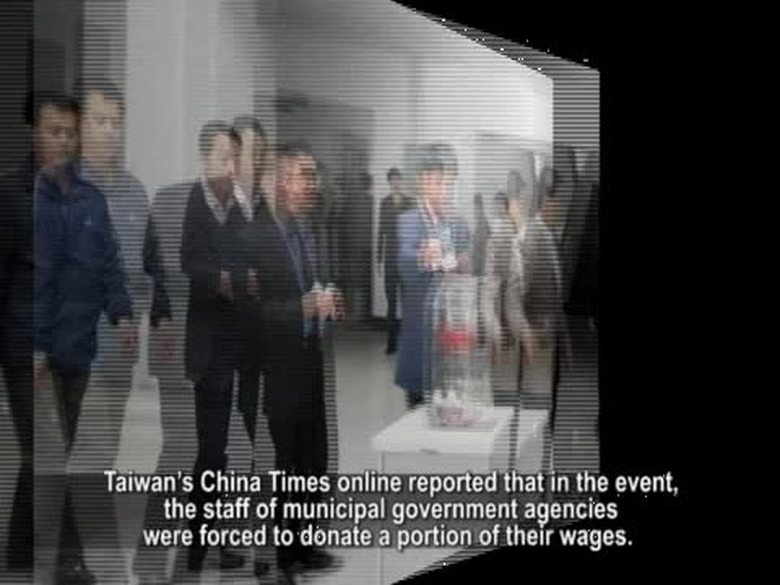
【禁聞】「博愛一日捐」 紅十字會曝「強捐」門
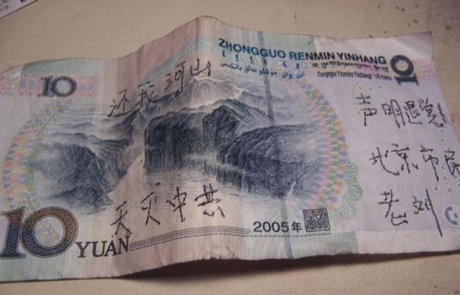
【禁聞】小小人民幣 傳遞大消息
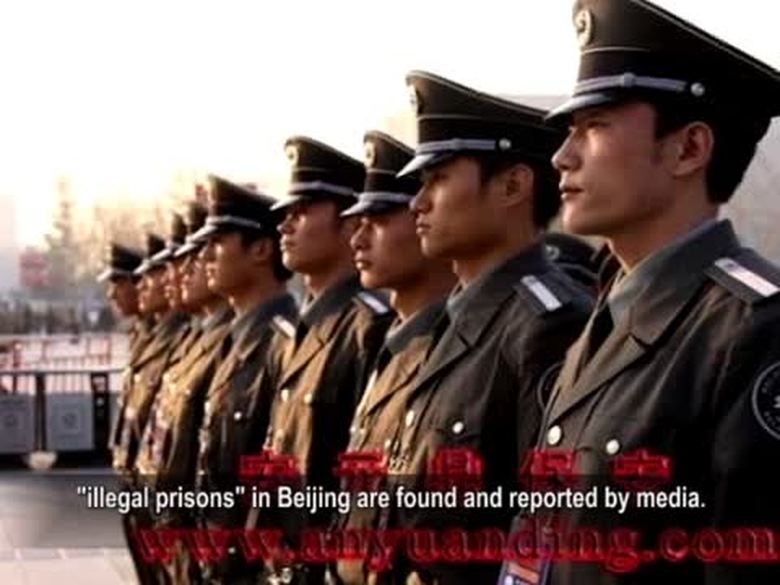
【禁聞】黑監獄猶在 訪民「冤遇」何時了?
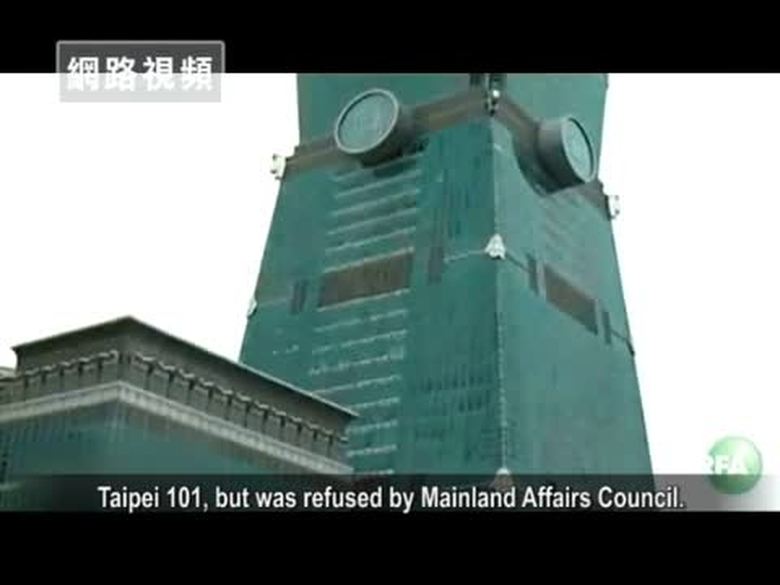
【禁聞】迷惑與哄騙? 中共在臺慾設新華社
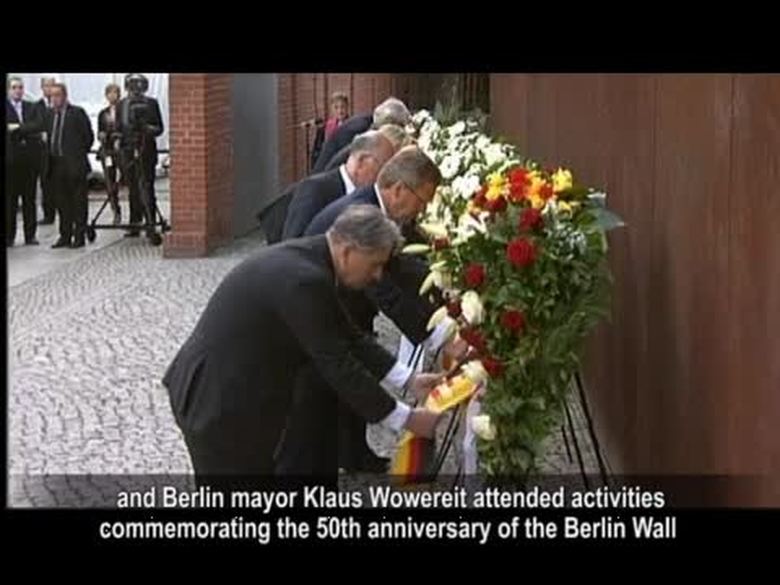
【禁聞】柏林建牆50年 民衆堅信中共牆倒
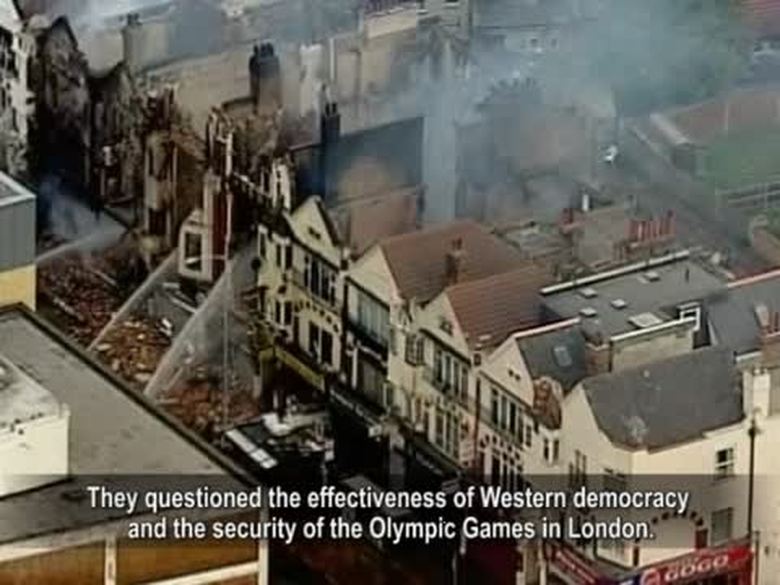
【禁聞】英國騷亂與中國群體抗暴有何不同
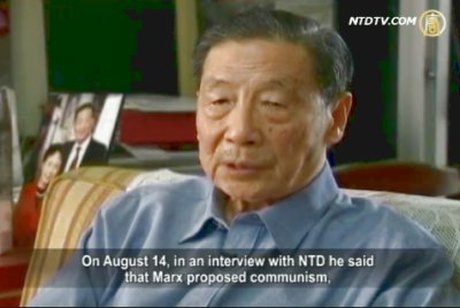
【禁聞】茅於軾:胡錦濤不見得信共產主義
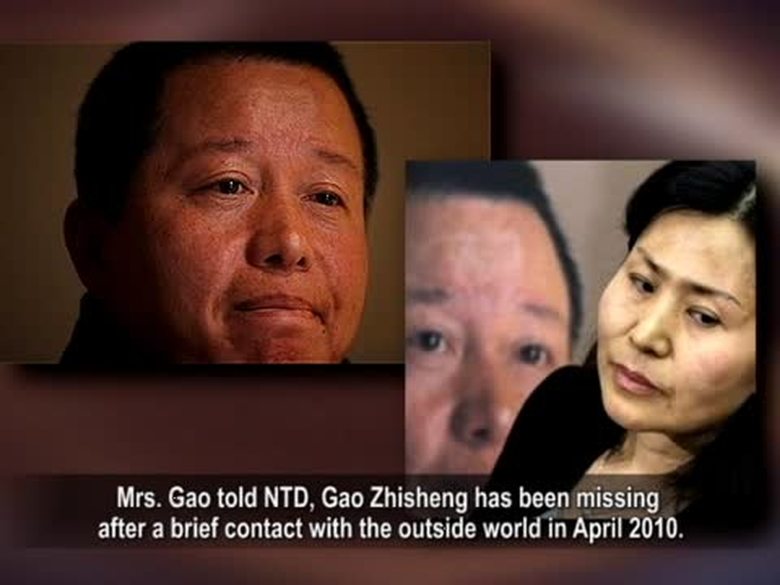
【禁聞】高智晟刑滿仍不見影 家人盼歸
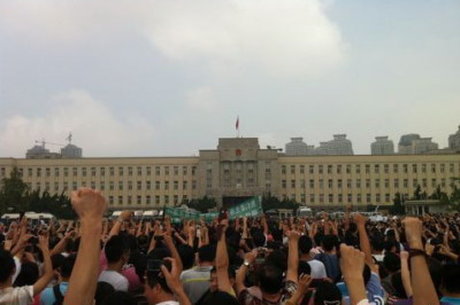
【禁聞】大連萬眾怒吼顯威 迫當局江系讓步
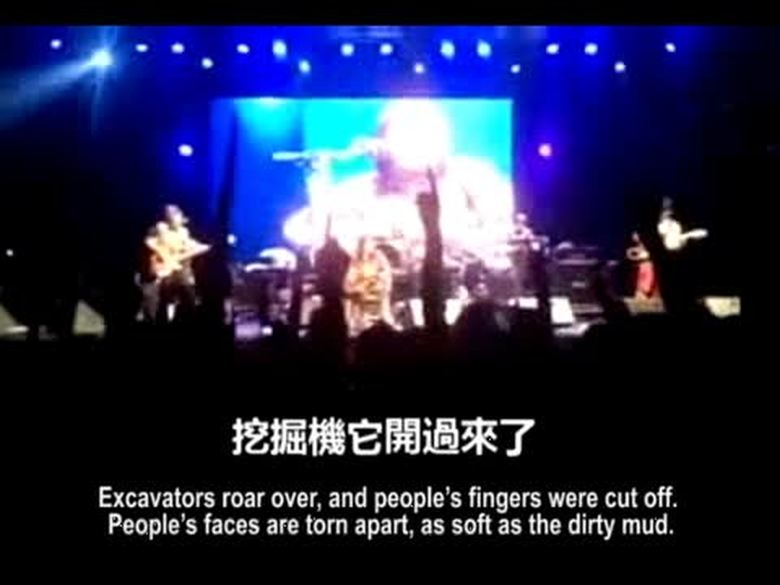
【禁聞】民間作歌動車慘案草菅人命
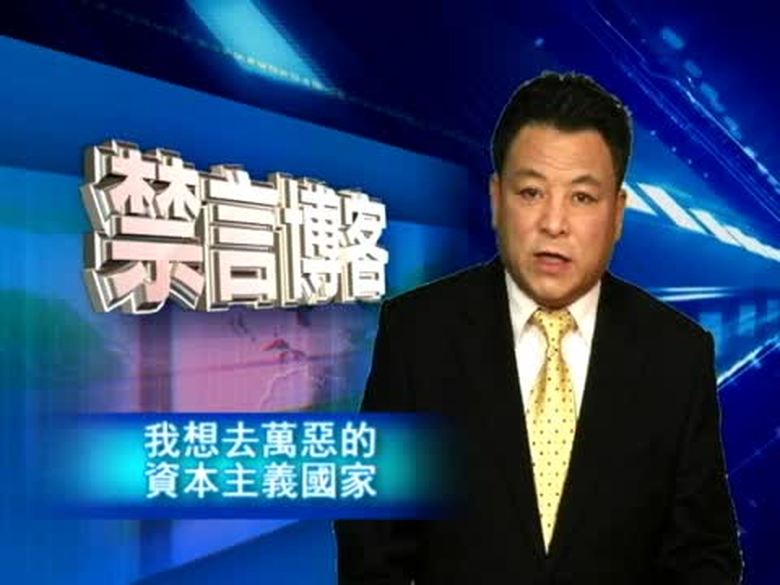
《禁言博客》我想去萬惡的資本主義國家
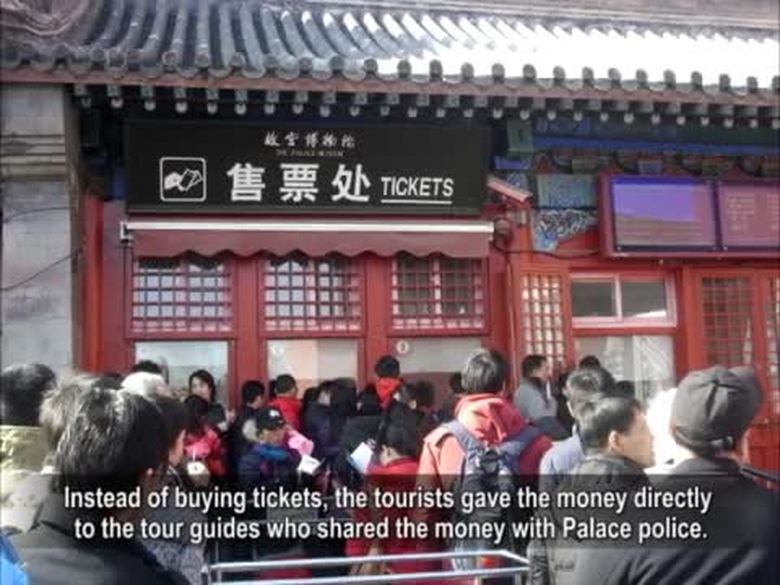
【禁聞】醜聞接連曝 故宮成「迷宮」
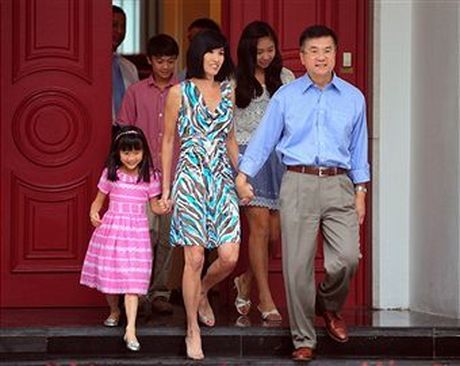
【禁聞】駱家輝低調抵京 給中共高官上課
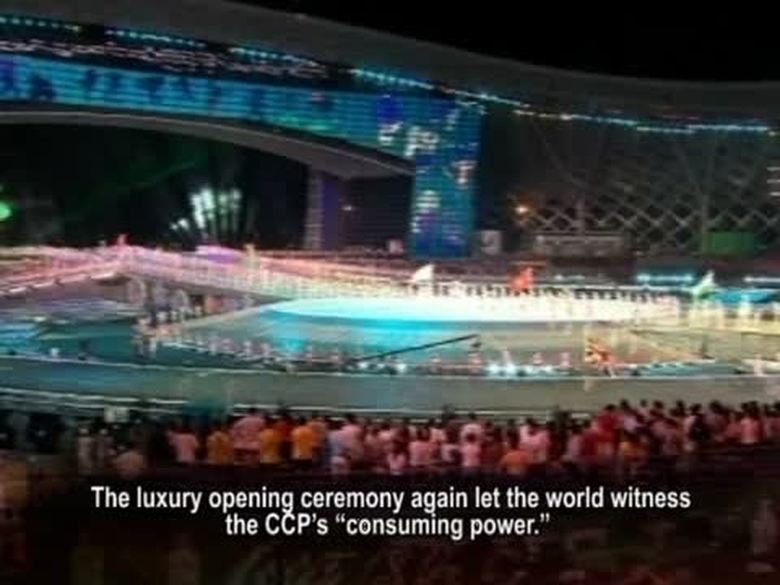
【禁聞】“大運會”運動員身份受質疑
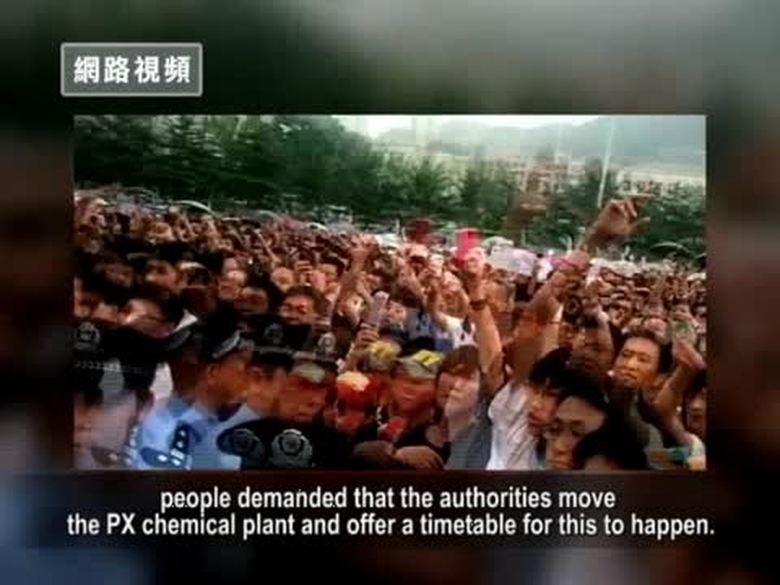
【禁聞】唐軍承諾未兌現 PX工廠依然運作
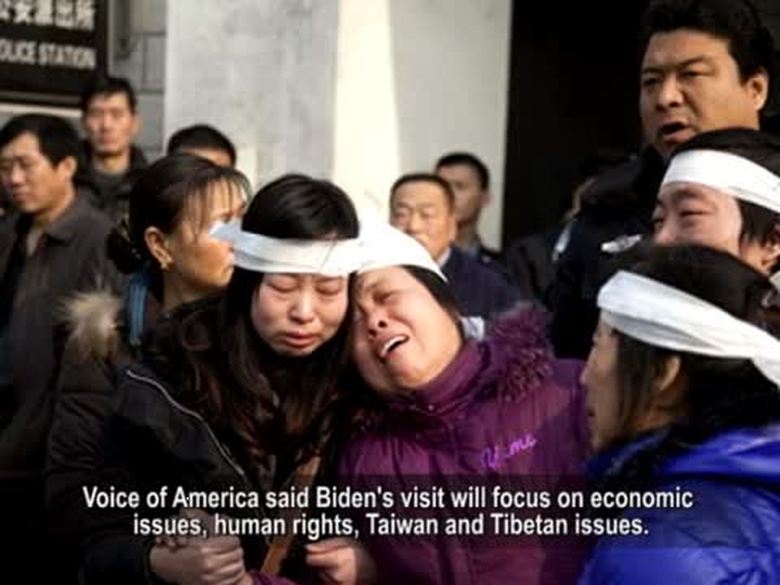
【禁聞】美副總統訪華 耿和求助促釋高智晟








